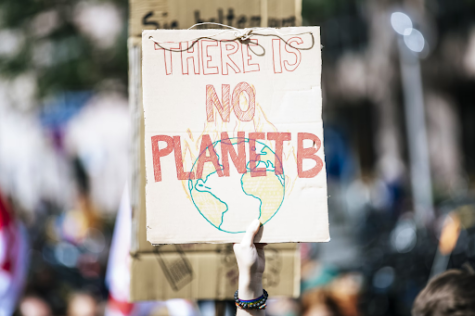A Winter Like No Other
Thanks to the effects of climate change, this winter might be the coldest in years.

In a few weeks time, Times Square could become a snowy ghost-town. New York City will be filled with masses of people trekking through snow and sleet to get to where they need to be.
The first ‘official’ day of winter has always been December 21st on the American calendar, the day when fall completely blurs into winter and the season turns into a mixture of coats and mittens. The air gets colder, freezing over lakes and rivers. This winter will be more severe.
Last winter during the 2020-2021 season was one to remember, the most memorable event being the winter snowstorm that devastated Texas. Millions of people were left without power, food, and basic necessities. No warning was given for this storm, and it hit Texas hard.
Texas and other states in the central United States are known for warm winters and scorching hot summers. Yet the winter storm in early February 2021 took everyone aback. “I was honestly shocked. I have so many friends in Texas, and they were in serious trouble because they weren’t exposed to those conditions. It is one of those instances where climate change is directly affecting people,” said Alejandro Chaumel ’24.
As reported in the Texas Tribune, “At least 57 people died in Texas as a result of last month’s winter storm.” The casualties of this intense storm have provided fuel to the claims of the lethalness that climate change can bring about.
The elements of last year’s winter weather will be carried into this upcoming winter with fluctuating temperatures. Predictions are continuing to be made as the weather is subject to change.
According to the annual AccuWeather forecast on ABC7NY, “The early arrival of chilly air will be just the first hill on the roller-coaster weather ride that is expected this winter.” We have already begun to experience cooler than normal weather as people began taking out their bulkier winter coats far earlier than expected. Typically, January is the most intense winter month. This is “the period of the winter when there will be ample cold air entrenched across the region for snowstorms to cause widespread disruptions,” according to the AccuWeather forecast. However, weather has become increasingly unpredictable, with the way that climate change is advancing, and the months before and after January are critical to regard with caution.
The causations of this unusually cold weather is the warming of the Arctic, specifically the upset in the equilibrium of the polar vortex, a region of cold winds. The polar vortex is associated with the increasing temperatures in the Arctic and the rest of the world. As the Arctic region continues to warm, the polar vortex stretches, leading to more cold air escaping into the other regions of the world.
When asked about the effects of the weather on an individual level, Annika Richard ’24 said, “The cold weather is a minor inconvenience to me. However, the increase in the amount of storms this year have caused a lot of damage to my house and the houses of people I know. Repairs cost a lot.” Numerous natural catastrophes have struck the world — physically injuring people, robbing them of their homes, and bringing upon financial disaster.
Climate change is an issue that demands immediate attention; in a few years, the effects of climate change may become irreversible.
Andrew Morrissey ’23 predicts that “climate change will push limits to extremes and make Earth an uncomfortable place to live in, riddled with natural disasters.” To Morrissey, “Regardless of the time frame, we are heading towards an uninhabitable planet, which is scary to think about.”
All people in some shape or form have this fear that the world is becoming irreversibly damaged to the point of no return. But nothing is being done. This poses the question of what can be done to slow down climate change. The main solution is the reduction of our carbon footprint.

Many slogans of climate change have preached that small steps can go a long way. When each individual begins to lower their carbon footprint, there is more hope that the future will be a much better place in which to live. However, local and federal governments in general must pitch in with drastic climate legislation in order to effectively combat climate change. As of now, climate change is seemingly not a priority for governments, but it should be.
Mr. McNickle, a science teacher at Bronx Science, ends with a lasting note. “I think that it is time for radical solutions to be explored. We have already demonstrated that we can remake the world for the worse, so let us try to remake it for the better.”
Climate change is an issue that demands immediate attention; in a few years, the effects of climate change may become irreversible.
Sirajum Munira is a Copy Chief for ‘The Science Survey.’ To her, journalism is a platform to speak truth, and be a voice to the voiceless. Sirajum...
